Valery Biktashev: Confession – Nataly Makovskaya
Filmed by Roman Gurochkin, my favorite maker of classical guitar videos.
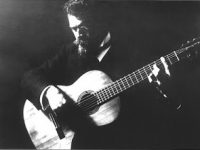



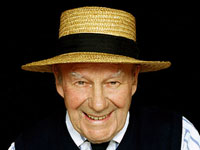



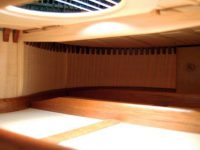
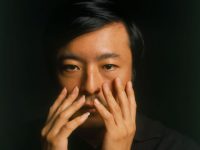

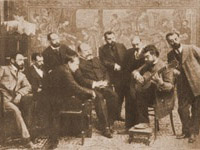
Filmed by Roman Gurochkin, my favorite maker of classical guitar videos.
Grondona is playing Polaca Fantástica by Julián Arcas (1832-1882), from a 2006 concert in Almería, Spain. The Antonio Torres guitar is #111 from the maker’s “Second Epoch” (SE 111).
Composed and performed by Frederic Hand for his granddaughter Sophia.
Guitar by John Gilbert, 1981.
Recorded August 13, 2012, at Greenville Church, Scarsdale, NY.
A nice Capricho by Drew Henderson. Takes his time, listens, tastefully varies his touch. Nice.
This time with The Guardian.
“There’s nothing sad about not playing any more. The thing I feel a little annoyed about is that I know I’m a better musician than I was at 70, but I can’t prove it.”
“I became much more critical in the last decade, of phrasing and tempo and general musical interpretation.”
“I devoted my life to music for a reason, and the reason wasn’t because I wanted to get on or make money, but to try to fulfil myself and also to give people pleasure. That’s been my credo.”
“The last 10 years of my life, from 70 to 80, have been the most interesting because I have only done what I wanted to do. I have cut away what I call the excess stuff in my life. I’m quite reflective – I listen to music, I read, I walk with Django.”
“I’ve had a lovely life. I’ve had a great life. Letting go, yes, but in a controlled way. Now it’s time to let go, to enjoy what’s left.”
From Wikipedia:
John Nicholas Maw (5 November 1935 – 19 May 2009) was a British composer.
Born in Grantham, Lincolnshire, Maw was the son of Clarence Frederick Maw and Hilda Ellen Chambers. He attended the Wennington School, a boarding school, in Wetherby in the West Riding of Yorkshire. His mother died of tuberculosis when he was 14. He attended the Royal Academy of Music on Marylebone Road in London where his teachers were Paul Steinitz and Lennox Berkeley. He then studied in Paris with Nadia Boulanger and Max Deutsch.
From 1998 until 2008, Maw served on the faculty of the Peabody Institute at Johns Hopkins University, where he taught music composition. He had previously served on the faculties of Yale University, Bard College, Boston University, the Royal Academy of Music, Cambridge University, and Exeter University.
Maw is best known for the orchestral pieces Odyssey (1987) and The World in the Evening (1988), the guitar work Music of Memory (1989) and a violin concerto (1993) written for Joshua Bell. His music has been described as neo-romantic but also as modernist and non-tonal (for instance Personæ, his cycle of piano pieces).
From Wikipedia:
Thomas Viloteau (born 1985) is a French classical guitarist who began his studies at the age of 12 in Port-Saint-Louis-du-Rhône in southern France. After beginning his career in France, in 1998 Viloteau continued his studies when he attended the Escuela de Música Juan Pedro Carrero in Barcelona, Spain. Here he studied under Maité Rubio while taking additional master classes with Álvaro Pierri. Furthering his education in Spain, beginning in 2000 Viloteau entered the Conservatorio Superior de Música de Barcelona where he studied with teacher Joan Furio. Returning to France in 2001, Viloteau entered the École Normale Supérieure in Paris after receiving the Fondation Zigmund Zaleski Scholarship. Here he studied under the guidance of maestro Alberto Ponce and graduated in 2004 with a Diplôme Supérieur de Concertiste. Remaining in Paris, Viloteau entered the Conservatoire National Supérieur de Musique de Paris in 2004, where he studied with Roland Dyens and worked privately with Judicaël Perroy. In 2009, Viloteau received the Milton Salkind Scholarship Fund to attend the San Francisco Conservatory of Music where graduated with a Professional Studies Diploma after studying with professor Marc Teicholz for a year.
Nothing’s perfect? I used to think so.
Samantha says:
I recently read that the Ukulele is the happiest instrument in the world so I wanted to share some happiness! For those of you who are used to me playing the guitar, don’t worry, it’s not a case of “Josie, I shrank the Smallman,” it’s just me enjoying the summer holidays with my new pet….the uke, or jumping flea. Just to prove that even little things should be taken seriously I decided to play some Bach. This is a very nice arrangement of the 2nd Bourrée from Bach’s 4th Cello Suite by Tony Mizen and can be found in his book, The Baroque Ukulele.
From what I can gather from Wikipedia, Lao Duang Duan is a 100-year-old Thai song of remembered love, written by a Thai prince whose marriage proposal to the Princess of Chiang Mai was rejected by her father.